George Pell’s death ‘shrouded in mystery’: former Vatican auditor Libero Milone vows to get to the truth
Libero Milone, the only man left alive of the high-powered trio who launched Pope Francis’s reforms of the Holy See’s corrupt financial systems, reveals he made a heartfelt vow to George Pell while paying final respects at his coffin in Rome.
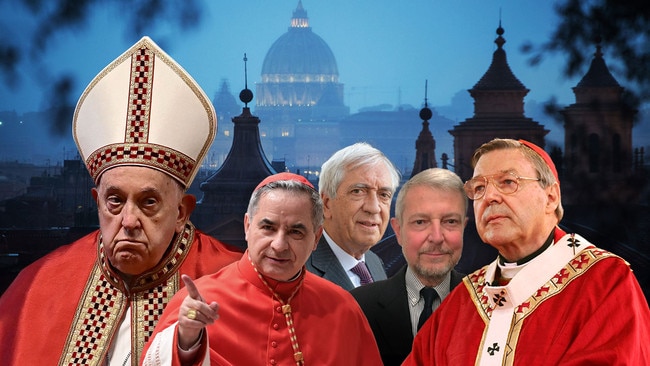
The Vatican’s first auditor-general, Libero Milone, has described the death of cardinal George Pell as “shrouded in mystery” and revealed he made a heartfelt vow to “get to the truth” for his colleague while paying final respects at his coffin in Rome.
Milone, a former partner with multinational accounting giant Deloitte is the only man left alive of the high-powered trio – led by Pell – who launched Pope Francis’s reforms of the Holy See’s corrupt, sclerotic financial systems.
But on June 18, 2017 – 11 days before Pell had to return to Australia to face historic child sexual abuse charges – Milone and his deputy, the late Ferruccio Panicco, a specialist forensic accountant, were sacked in mysterious, violent circumstances.
As Milone prepares for the start of an appeal hearing on Wednesday over his and Panicco’s sackings, the former auditor-general said Pell’s success in overturning his convictions on child-sex offences proved that “some judicial systems are efficient and effective”. And amid rumours swirling around the Vatican about Pell’s death and the state of his body post-autopsy, Milone said: “At his funeral, at his casket, I promised him that we would seek out the truth.”
In June 2017, Vatican police raided Milone’s office, bursting in unexpectedly, confiscating electronic equipment and forcing open a safe with axes, crowbars, sledgehammers, chisels, and power-drills.
Milone and Panicco were then detained for hours by Vatican gendarmes. They were accused of spying and threatened with criminal charges if they refused to sign resignation letters. Milone, a Dutch-born UK chartered accountant who came to the job with sterling credentials as former chairman and chief executive of Deloitte in Italy, has not worked since. And Panicco’s medical records were confiscated in the raid, leading to a long delay in diagnosis and treatment for what turned out by then to be stage four prostate cancer.
Milone says Ferruccio’s death, on June 21 last year, was hastened by the Vatican’s disgraceful behaviour. He told The Australian that Panicco, recorded a moving video message a few days before he died, imploring Pope Francis to intervene and right the “brutality and injustices” that had destroyed their professional lives and caused suffering to their families.
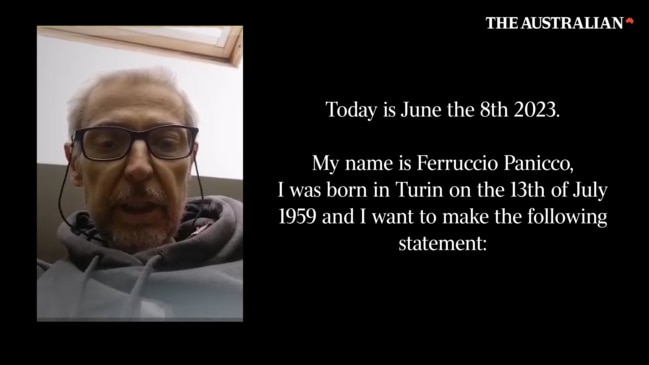
When it became clear that his colleague did not have long to live, Milone phoned Cardinal Pietro Parolin, the Vatican Secretary of State, to tell him. Cardinal Parolin assured Milone that Pope Francis would call Panicco personally.
“This too did not happen,” Milone said.
After five years of struggling to find out what the accusations against them were, Milone and Panicco sued the Vatican for wrongful dismissal in 2022, seeking more than €9m ($14.5m) in compensation for lost earnings and damages. That included €3.5m in material damages for the loss of Panicco’s medical records.
They also tried several times to reach an out-of-court settlement but were unsuccessful.
In a written decision dated January 22 this year, the Vatican court rejected their claim – but not through a finding that the two men had been correctly forced from their jobs.
In a bizarre twist that raised eyebrows among veteran Vatican watchers, the tribunal agreed that the gendarmes had been responsible for their removal.
But, the court ruled that the gendarmes and the now-disgraced cardinal Angelo Becciu – the nemesis of Pell and Milone for two years during the financial reform process – had acted in their capacity as “private persons’’.
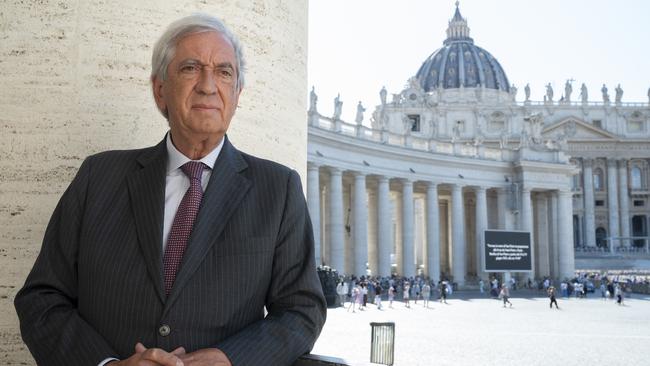
As a result, the Secretariat of State could not be liable for loss of reputation or earnings. This was despite the fact Becciu at the time was Sostituto (deputy) of the Secretariat of State and that the decree appointing Milone as auditor-general in 2015 had been signed by Becciu’s boss, Cardinal Parolin. Costs were awarded against Milone and Panicco’s estate.
In his appeal against that decision, lawyers for Milone and Panicco’s estate will argue that Cardinal Becciu had acted as a Vatican official, not as a private person when he pressured the two men to resign in 2017.
Milone said Pell had stated publicly many, many times that his two colleagues were “simply auditing and doing their jobs”. Pell believed Milone and Panicco deserved to win their original appeal and were entitled to compensation.
Milone said Pell had been scheduled to give evidence on behalf of Milone and Panicco in their unfair dismissal lawsuit and any subsequent appeals, but was hampered by the long legal delays and procedural process.
Milone said the Vatican “deliberately chose skilled, knowledgeable people to show the world that the Vatican meant business about true financial reform”.
“But then they hid a subsequent plan to cripple our activities and continue to hide the malversations. They miscalculated because they chose people with an extremely high level of personal and professional ethics,” he said.
Milone said he, Ferruccio and Pell “were all thrown out by using different reasons within a time span of 10 days”.
“After a tumultuous trial in Australia, Cardinal Pell was able to demonstrate that he was innocent, which proves that some judiciaries are efficient and effective,” he said. “His death however remains shrouded in mystery.”
Pell died on January 10 last year, hours after a routine hip-replacement operation in the Salvator Mundi Hospital, an 82-bed private centre.
His funeral was held in St Peter’s Basilica four days after his death, with Pope Francis presiding over the rite of final commendation and farewell.

The fact that the cardinal’s casket was closed and did not allow for the traditional farewell touch or kiss by mourners raised eyebrows among many at the mass.
Pell’s body was flown to Australia immediately afterwards, in the care of his personal secretary, for burial in St Mary’s Cathedral in Sydney.
At least two cardinals, close friends to Pell in Rome, had urged him to consider returning to Australia for his surgery. They and others were concerned about his safety and welfare in the wake of revelations of corruption and embezzlement within the Curia.
However, Pell insisted on staying in Rome. Being over 80 he knew he was too old to vote in a conclave but was determined to address his brother cardinals in pre-conclave meetings.
After his death, Vatican gendarmerie hunted high and low for his significant personal papers and other documents. However, he had become extremely security conscious after his telephones in Rome were bugged and had stored the papers with a friend elsewhere in Europe. At one point, his senior Australian staff raised their eyebrows when the Vatican issued him with a Huawei mobile phone.
Rumours have swirled around the Holy See for months that Pell’s body was left in post-autopsy disarray and not been properly dressed sparking further concerns about his last hours.
The Australian has asked the Salvator Mundi hospital to comment on claims by senior sources that internal CCTV cameras were not working on and around January 10 last year and that no medical doctor was on duty the evening the cardinal died. At the time of publication, the hospital has not responded.
Ten months after Pell’s death, a 2½-year corruption investigation, dubbed the “Vatican trial of the century”, resulted in the conviction and sentencing of nine people for financial crimes. Those convicted included Becciu, who is yet to serve a day of the 5½ years in prison to which he was sentenced.
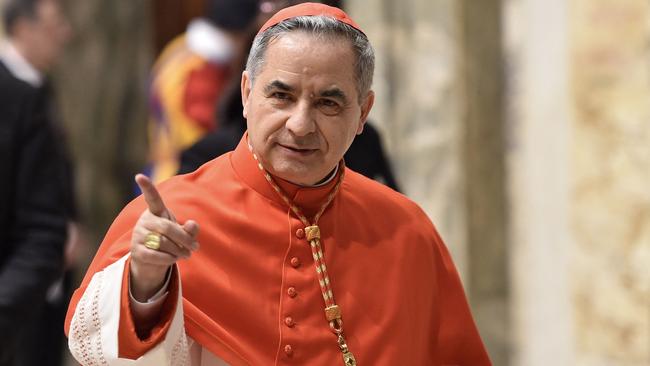
The trial was the Vatican’s worst corruption scandal since Italian banker Roberto Calvi was found hanged from London’s Blackfriars Bridge in 1982. Before he was found dead, Calvi had faced corruption allegations in Italy in a case involving the church, the mafia and the P2 Masonic Lodge. His death was initially treated as suicide and while five people were later tried for murder, they were acquitted in Italy in 2007.
The “trial of the century’’ was led by court president Giuseppe Pignatone – a veteran of years investigating Sicilian mafia and Calabrian ’Ndrangheta bosses. After 85 hearings, it uncovered an array of financial crimes, including abuse of office, fraud, and money laundering.
The trial was widely interpreted as an attempt by Pope Francis to encourage unprecedented, official scrutiny of the historically muddy world of the Vatican bank and Holy See investments. Supporters of transparency and accountability also hoped it would reinvigorate stymied reforms of Vatican financial dealings, and bring them under 21st-century accounting rules and oversight.
However veteran Vatican observers along with conservative critics of Pope Francis’s doctrinal and social policies, argue that the proceedings exposed yet another, unexpected litany of embarrassments, including the continuing, ingrained culture of self-interest, inefficiency, blind loyalty and plotting and scheming within the highest echelons of the Roman curia.
Milone is convinced that Becciu was, from the very beginning, Pell’s nemesis in the clean-up of Holy See accounting systems. He had “revolving door access to the Pope”, he said, but very quickly came to realise that the auditing team were “starting to see things he didn’t want seen”.
“In 2016, we were surprised when told that it would be difficult to get documentation on Vatican real estate investments in London – we didn’t realise it then that we had raised the quails from the high grass,’’ Milone said.
“It suffices to say that in the two years we were allowed to operate, we came across misappropriations of funds by cardinals, archbishops, and other prelates, some of which diverted to personal bank accounts, mismanagement of real estate and refurbishing costs, and a generalised disrespect of legal provisions.
“I have always asserted that we were eliminated for what we uncovered as a result of having done our job professionally, ethically, and correctly within the terms of the Office of the Auditor General statutes. My job was to direct and co-ordinate activities with the Secretariat for the Economy, headed by Cardinal George Pell and systematically report to the Holy Father.”
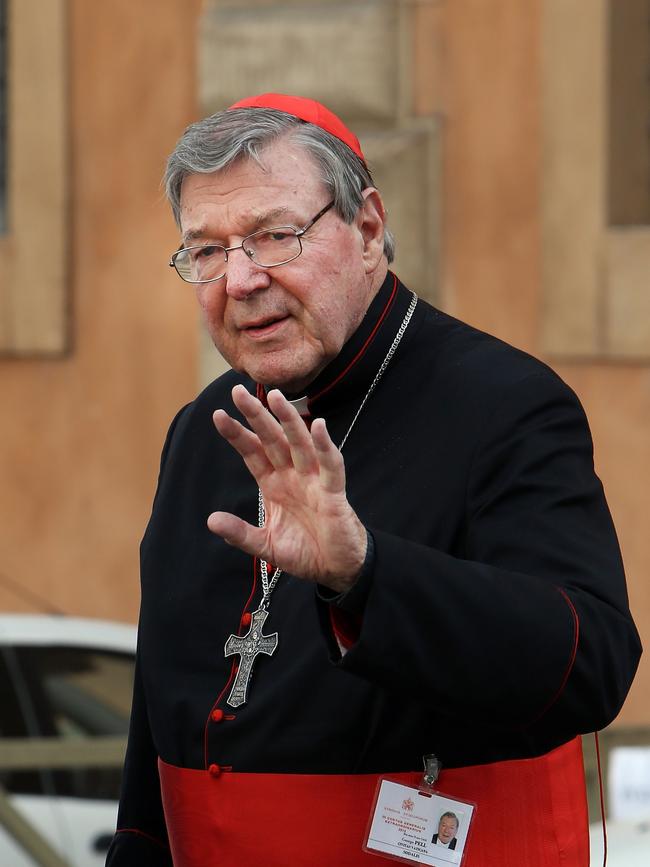
Milone said he found it unbelievable that the very court and the same judges who sentenced Becciu for presiding over the swindling of millions from the Vatican, now “strangely fail to recognise” that those who first detected the crimes could see their careers terminated without compensation.
“It is also absurd that the court could absolve the Secretariat of State of our removal when it was Cardinal Becciu who issued a public statement confirming his role in our removal – and that we would have faced prosecution if we had not signed resignation letters,” he said.
Milone remains adamant that, before their sacking and Pell’s return to Australia, Becciu was also behind several significant decisions aimed at derailing their work. These included cancellation of a planned audit by an external PriceWaterhouseCoopers team and months of stonewalling of all requests for documentation on Vatican investments including the ill-fated £350m acquisition of the London commercial property that sparked the corruption trial.
The auditors also reported the bugging of their Vatican offices, and the hacking of the team’s computers.

Milone said both he and Pell believed Becciu used the audit office’s decision to use an external consultant to investigate the break-in and twisted it into an accusation of spying: “Of course Domenico Giani, the ex-Italian police officer who headed Vatican security and the gendarmes, would have supported this as we now know he had to cover up the improperly funded refurbishing costs on his apartment.”
Milone said he reported the anomalies both to the Secretary of State and the Pope himself but all requests for explanatory documentation were denied.
“I can only imagine that Commander Giani, who was quite vociferous in my dismissal and arrogant and violent during my interrogation on June 19, 2017, had a massive grudge against me and quite an axe to grind,” Milone said.
He said that, to this day, the document the gendarmes called “number 61”, and which supposedly contained all the evidence against him and Panicco, had yet to surface.
“How is it possible for us to build an effective defence without knowing what we are accused of?” he said.
“For reasons unknown, the document was classified and covered by pontifical secret. The process is absurd, it is a mockery of justice.
“We continue to invite them to be honest and factual, striving to better understand the real substance of the case, as succinctly stated above. We merely did our work in accordance with the rules we had to follow. The documents we presented in January 2023 demonstrate that all we did was carry out audits. Why don’t they want to acknowledge these evident facts?”
